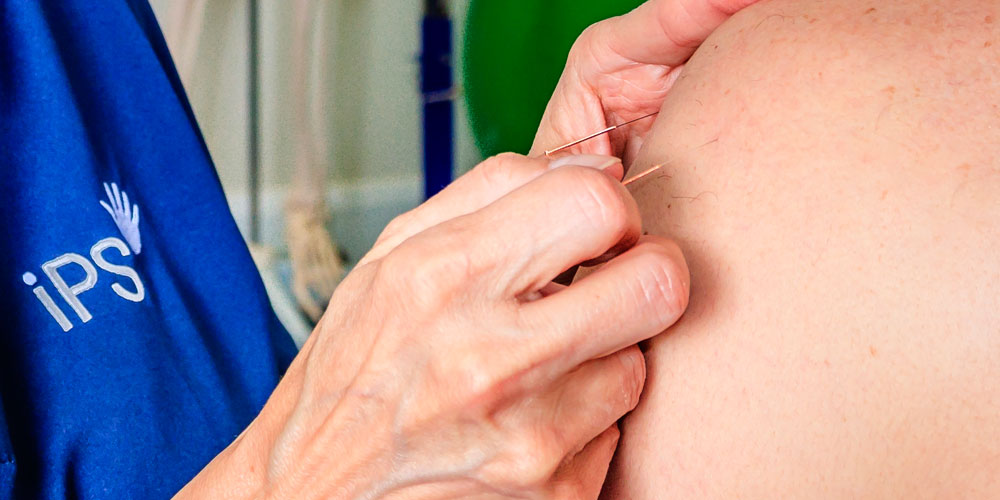**Important Notice:** We are in the process of changing our website and clinical software, and our online booking is currently unavailable.
Please call us on 03456 252 252 or
click here to arrange an appointment.

Bell's Palsy
Physiotherapy for Bell's Palsy in Bridgend, Cardiff, Carmarthen, Newport, and Porthcawl
Bell's Palsy is a condition that causes sudden weakness or paralysis in the facial muscles, usually on one side of the face. This is due to inflammation or compression of the facial nerve. It can lead to facial drooping, difficulty closing the eye, and challenges with eating or speaking. While the exact cause is often unknown, recovery is typically possible within weeks to months. Physiotherapy can accelerate recovery by improving muscle tone, reducing stiffness, and retraining facial movements.
Symptoms of Bell's Palsy
- Sudden weakness or paralysis on one side of the face
- Drooping of the mouth and eyelid
- Difficulty smiling, blinking, or making facial expressions
- Sensitivity to sound in the affected ear
- Dry eye or mouth on the affected side
Causes of Bell's Palsy
- Viral infections such as herpes simplex (cold sores)
- Inflammation or swelling of the facial nerve
- Complications from other infections like the flu or ear infections
- Stress or immune system reactions
- Unknown or idiopathic triggers

How Physiotherapy Can Help Bell's Palsy
Physiotherapy is highly beneficial for Bell's Palsy recovery, focusing on improving facial muscle control and preventing long-term stiffness or synkinesis (unwanted facial movements). Techniques include guided facial exercises, gentle massage to reduce stiffness, and neuromuscular retraining to restore symmetry and expression.
Treatment Plan for Bell's Palsy
Treatment plan for Bell's Palsy:
- Initial assessment to evaluate facial nerve function
- Guided facial exercises tailored to your level of recovery
- Massage techniques to alleviate tightness and improve circulation
- Neuromuscular retraining to restore balanced facial movement
- Education on self-care techniques to support recovery

What appointment should I make if i have Bell's Palsy?
If you suspect that you have Bell's Palsy, we recommend that you should make an Initial Assessment Appointment with one of our physiotherapists to assess your condition and recommend a course of treatment best suited to aid your recovery. You can book your appointment directly online or contact us on 03456 252 252 if you would like to speak to one of our advisers.
Online Booking
Contact Us

Specialised Acupuncture
Specialised Acupuncture at iPS Clinics in Bridgend, Cardiff, Carmarthen, Newport & Porthcawl
Acupuncture is a well-established treatment that can help alleviate symptoms of Bell’s Palsy by stimulating nerve regeneration and improving muscle function. By inserting fine, sterile needles into specific points on the body, acupuncture enhances blood circulation, reduces inflammation, and supports the recovery of facial nerves. This holistic and non-invasive approach is particularly suitable for those seeking to complement conventional treatments and promote natural healing. Performed by our skilled practitioners, acupuncture is tailored to your individual needs. Use the link below to find out more about how this treatment can help, or contact us today to discuss your treatment with one of our advisers.
Acupuncture
Contact Us
Frequently Asked Questions
Can Bell's Palsy fully resolve?
Yes, most people recover fully within 3–6 months. Physiotherapy can support and speed up this process.
Is Bell's Palsy the same as a stroke?
No, Bell's Palsy is caused by nerve inflammation and is not related to a stroke. However, its symptoms can appear similar, so seeking medical evaluation is important.
How long does recovery take?
Recovery times vary, but mild cases may resolve within a few weeks. More severe cases can take several months, with physiotherapy aiding improvement.
When should I start physiotherapy for Bell's Palsy?
Physiotherapy should ideally begin within the first few weeks after diagnosis to prevent muscle tightness and promote recovery.
Why choose iPS for Bell's Palsy treatment?
At iPS, we provide expert care tailored to your condition, using evidence-based physiotherapy techniques to support your recovery.





